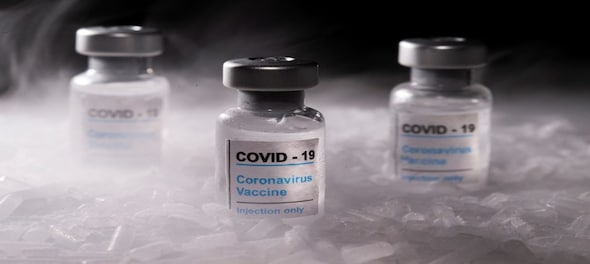
A new Lancet study has found COVID-19 mRNA vaccines to be safe to be administered during pregnancy. It also revealed that there were "lower rates of significant adverse events following immunisation in pregnant people than non-pregnant vaccine recipients for both mRNA vaccines used in Canada, after dose one and dose two."
The study also supported the importance of high vaccine coverage for the protection of pregnant persons and infants. The study, published in The Lancet Infectious Diseases, was conducted between December 2020 and November 2021 among participants across seven Canadian provinces.
It included samples of pregnant, vaccinated women aged 15-49 years. These were compared with samples of non-pregnant vaccinated women and pregnant unvaccinated falling in a similar age group. "For statistical modelling, the analysis was restricted to those who received any mRNA vaccines BNT162b2 (Pfizer) and mRNA-1273 (Moderna)".
"COVID-19 mRNA vaccines have a good safety profile in pregnancy," it said in conclusion.
In this study, researchers also focused on the side effects in a group of vaccinated pregnant women simultaneously as both an unvaccinated pregnant group and a vaccinated non-pregnant group. Rates of significant adverse events following immunisation were highest after the second dose for Moderna recipients. However, it said, "both mRNA vaccines are highly immunogenic and effective in pregnancy."
Here are some key takeaways from the study
Overall, 226 (4·0 percent) of 5,597 mRNA-vaccinated pregnant females reported a significant health event within seven days after dose one of an mRNA vaccine, and 227 (7·3 percent) of 3,108 after dose two.
Conclusion
"...We found that significant health events — new or worsening health events following vaccination sufficient to cause work or school absenteeism, medical consultation, or prevent daily activities — were lower in pregnant people than in age-matched non-pregnant vaccine recipients," the study said.
Researchers said the data could be used to appropriately inform pregnant people regarding the "reactogenicity of COVID-19 vaccines" during pregnancy. The finding should also be considered alongside effectiveness and immunogenicity data to make appropriate recommendations about the "best use of COVID-19 vaccines in pregnancy".
What are COVID-19 mRNA vaccines?
The Pfizer-BioNTech and Moderna COVID-19 vaccines are messenger RNA (mRNA) vaccines. According to the CDC, many vaccines put a weakened or inactivated germ into our bodies to trigger an immune response.
But this is not the case with mRNA vaccines. These vaccines use "mRNA created in a laboratory to teach our cells how to make a protein — or even just a piece of a protein — that triggers an immune response inside our bodies".
This immune response, which produces antibodies, is what helps protect people from getting sick from that germ in the future.
(Edited by : Akriti Anand)
Check out our in-depth Market Coverage, Business News & get real-time Stock Market Updates on CNBC-TV18. Also, Watch our channels CNBC-TV18, CNBC Awaaz and CNBC Bajar Live on-the-go!


Bengaluru Rural Lok Sabha election: Deve Gowda's son-in-law Manjunath to lock horns with Congress' DK Suresh
Apr 26, 2024 9:11 AM
Thrissur Lok Sabha election: Suresh Gopi, K Muraleedharan and VS Sunil Kumar locked in triangular contest
Apr 26, 2024 8:51 AM

